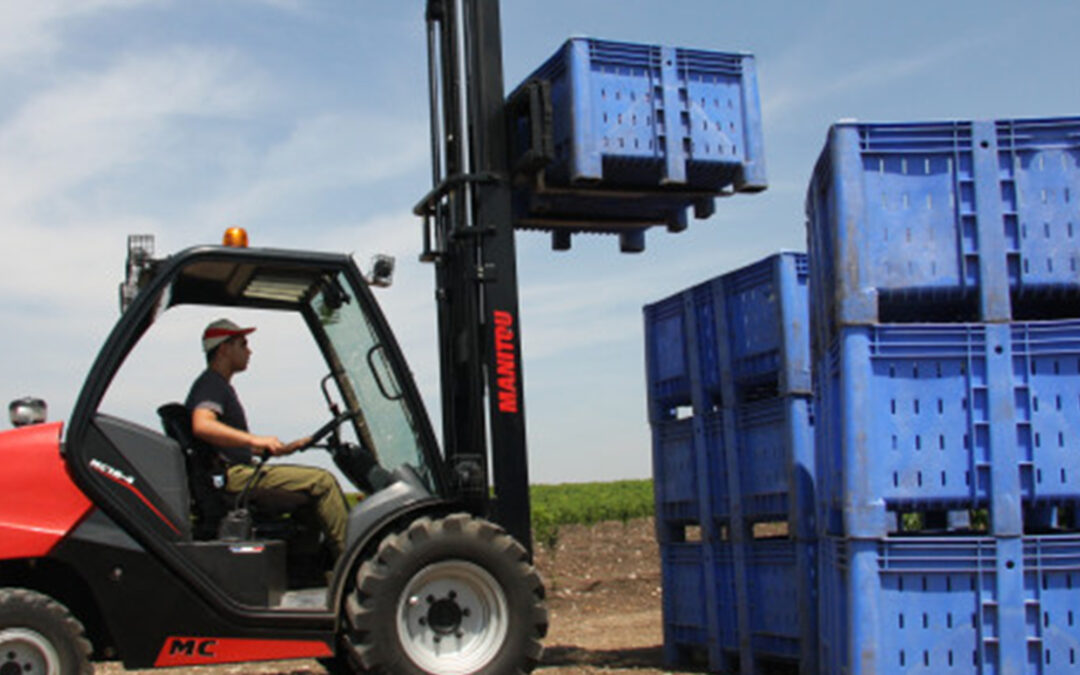When operations move off the pavement and into unpredictable environments, standard forklifts just won’t cut it. For businesses that rely on dependable equipment across rugged terrain, rough terrain forklifts are a must-have. These heavy-duty machines provide the power, traction, and durability needed to maintain productivity in even the most demanding job sites.
The Role of Rough Terrain Forklifts
Rough terrain forklifts are purpose-built to perform where standard material handling equipment struggles. Equipped with large flotation tires and increased ground clearance, these machines are designed to tackle unstable surfaces like gravel, mud, sand, or uneven dirt lots. Their primary role across industries is to move heavy materials safely and efficiently in outdoor environments where weather, slope, and surface conditions can change daily.
More than just lifting power, rough terrain forklifts contribute to safer workspaces. Their enhanced stability reduces the risk of tipping on uneven ground, and their reinforced frames hold up under harsh conditions. By enabling reliable material transport in less-than-ideal environments, they help businesses minimize downtime, maintain timelines, and protect both workers and equipment.
Popular Sectors for Rough Terrain Forklifts
Rough terrain forklifts are critical tools across a wide variety of sectors. Their ability to adapt to rugged environments, transport heavy materials, and support productivity makes them a smart investment for operations that go beyond the warehouse floor. Let’s explore some of the most common industries that could benefit from using a rough terrain forklift.
Construction
Construction sites are rarely flat or predictable, with mud, gravel, and uneven surfaces presenting constant challenges for equipment. Rough terrain forklifts are built to thrive in these environments, providing powerful lifting capacity and stable navigation across unstable ground. From transporting pallets of bricks and steel beams to unloading heavy materials from delivery trucks, these machines play a vital role in keeping timelines on track and job sites organized and productive.
Agriculture and Farming
Farms, ranches, and vineyards often span acres of rough, varied terrain that changes with the seasons. Rough terrain forklifts offer farmers the power and reliability needed to handle heavy loads in muddy fields, on sloped pastures, or through narrow rows. Common tasks include moving hay bales, feed, harvest bins, and irrigation equipment. Their durability and high ground clearance make them indispensable tools for maintaining smooth daily operations across outdoor agricultural environments.
Lumber and Forestry
Sawmills, logging yards, and forestry operations require machinery that can carry heavy, oversized loads over rugged, debris-covered ground. Rough terrain forklifts are essential for transporting logs, planks, and other raw timber from felling sites to processing areas. These machines provide the strength, traction, and balance needed to navigate uneven lots while minimizing the risk of tipping or breakdowns. Their durability ensures continued operation, even in muddy or heavily wooded environments.
Oil, Gas, and Energy Sector
Oil fields, gas rigs, and remote energy installations are known for their harsh conditions and limited infrastructure. Rough terrain forklifts are ideal for transporting materials like drill pipes, rig components, and tools across dirt roads, gravel pads, and construction-heavy zones. Their tough design ensures equipment moves efficiently and safely in environments where traditional forklifts would fail. They help support productivity in critical operations where uptime, safety, and performance are non-negotiable.
Landscaping and Outdoor Contracting
Landscaping crews and contractors often work in undeveloped or off-road locations where terrain can range from soft soil to rocky slopes. Rough terrain forklifts allow teams to load and move materials like stone, mulch, plants, and debris with ease. Whether it’s setting up a large outdoor installation or hauling tools around a job site, these machines improve efficiency, reduce manual strain, and help professionals handle large, awkward loads with stability and precision.
Event and Venue Logistics
Outdoor events like concerts, fairs, sporting events, and festivals demand reliable logistics in unconventional spaces. Rough terrain forklifts are used to set up stages, unload tents, move fencing, and transport gear across grass, gravel, or turf. Their all-terrain capabilities and compact maneuverability help crews manage tight schedules and ever-changing layouts. Whether prepping a park or setting up in a field, they ensure smooth, efficient operation from setup to breakdown.
Explore how to choose the best forklift for your business—whether you need rough terrain capability or another specialized solution.
Factors to Consider When Choosing a Rough Terrain Forklift for Your Business
Selecting the right rough terrain forklift involves more than just picking the most powerful option. It’s important to match the equipment to your specific work conditions, usage needs, and long-term goals. Here are some factors to consider when choosing your rough terrain forklift.
Terrain Conditions
Before choosing a rough terrain forklift, evaluate the types of surfaces your equipment is going to face, like mud, gravel, sand, or slopes. The right machine should offer proper ground clearance, and tire type to maintain stability, prevent equipment damage, and keep operations running smoothly in unpredictable or off-road environments.
Load Capacity Requirements
It’s essential to choose a forklift that can safely handle the heaviest loads your business regularly lifts. Underrating load capacity can lead to accidents, strain the equipment, and slow productivity. Knowing your peak weight needs ensures that your forklift operates efficiently, safely, and without unnecessary stress on its components.
Lift Height Needs
Many operations require lifting materials to elevated locations, whether it’s stacking pallets or reaching high shelving. Selecting a forklift with the right lift height ensures you meet job site demands safely. Consider the maximum height required and ensure your chosen equipment can perform without compromising load balance or operator control.
Fuel Type Preference
Fuel type plays a significant role in overall performance and operating costs. Diesel and propane forklifts offer power and long run times, while electric models provide quieter operation and lower emissions. Consider your site’s fuel availability, environmental restrictions, and daily run time needs when selecting the most practical option.
Usage Frequency
How often you plan to use your forklift should guide your investment decision. Daily, demanding use typically justifies purchasing new equipment. In contrast, occasional or seasonal use might be better served through refurbished models or flexible rental options, reducing upfront costs without sacrificing performance or operational readiness.
Operator Comfort and Safety Features
Operator safety and comfort directly impact productivity and job satisfaction. Look for features such as ergonomic controls, cushioned seats, improved visibility, and safety enhancements like rollover protection systems and alarms. A comfortable operator is more alert, efficient, and less prone to injury or error during long or repetitive shifts.
Transport and Storage Space
It’s easy to overlook the space needed to store and transport your forklift. Be sure your facility or job site can accommodate the machine’s size, turning radius, and maneuvering needs. Also, consider how easily the equipment can be moved between locations, especially if your operation spans multiple job sites.
By carefully assessing these factors, businesses can invest in the right equipment that boosts productivity, reduces downtime, and performs reliably across a wide range of operational conditions.
Secure the Right Rough Terrain Forklift For Your Business With HTX
When it comes to powering through unpredictable environments, having the right equipment makes all the difference. HTX Material Handling offers a wide range of rough terrain forklift solutions—available new, used, or through flexible rough terrain forklift rental programs. Whether you need a short-term lift for a specific project or a long-term upgrade for ongoing outdoor operations, HTX has the inventory and expertise to match your needs.
Backed by trusted brands like Manitou, our forklifts are built for performance, safety, and durability. From construction and agriculture to energy and event logistics, we help you tackle challenging job sites with confidence. Let our team help you evaluate your operation and recommend the best equipment option, so you can focus on getting the job done. Contact HTX today to find the rough terrain forklift that fits your workflow, your budget, and your environment.






